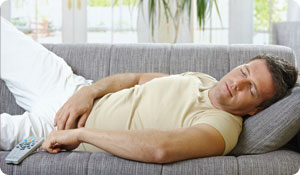
Naps aren't just for children. Some adults find that an afternoon nap leaves them feeling refreshed and ready to face the rest of the day with a clear head. Recent studies have also found that napping can also boost brain function and performance.
Open Your Eyes to These Napping Guidelines
However, not all naps are created equally. There's a difference between a snooze that makes you more alert and one that leaves you groggy. Michael Grandner, PhD, clinical psychologist and instructor in the Department of Psychiatry at the University of Pennsylvania, and member of the Behavioral Sleep Medicine Program (BSMP), the Center for Sleep and Circadian Neurobiology (CSCN), and the Institute for Translational Medicine and Therapeutics (ITMAT) at Penn, suggests that before you close your eyes during the day, you consider the following guidelines:
Timing
"Naps that are too late in the day are more likely to leave you more tired than refreshed," Grandner explains. He says that the ideal time a nap is in the early afternoon. "The closer you get to sundown, the more likely your nap won't be restful and may interfere with sleep that night."
Length
Shorter naps are better. In fact, Grandner recommends limiting your naptime to 15-30 minutes. "This is because you want to avoid deep sleep, which your body will begin after you've napped for a while," he says. "If you get into deep sleep, you are more likely to wake up disoriented and cranky."
Conditions
Your surroundings when you nap can affect the quality of your sleep and how you feel afterward. Napping isn't meant to be the same as a full night's sleep, and Grandner says you'll need to remind your body of this. "Although you should be comfortable, be wary of napping anywhere that is too dark or otherwise re-creates the nighttime sleep environment." He says that when it's dark in the room, it can be much more difficult to keep the nap short. Therefore, keep your window shades open or leave on a small light on while you sleep.
Frequency
Some people nap at the same time every day; others nap periodically when they need some refreshing. How often you nap is personal and Grandner says you should do what works best for you and your body. Just be aware that if you have an intense need to nap constantly, it could be a sign of an underlying medical problem.
Nap Alternatives
People with insomnia should forego naps. "If you have difficulty falling asleep at night you may want to avoid naps as they may be interfering with your ability to get to sleep later," he says. "It's like having a small meal too close to dinner. If you didn't have much of an appetite before, you won't have any if you eat just before dinnertime."
Some relaxing alternatives include performing yoga, listening to mellow music, reading a book, taking a walk, and meditating.





